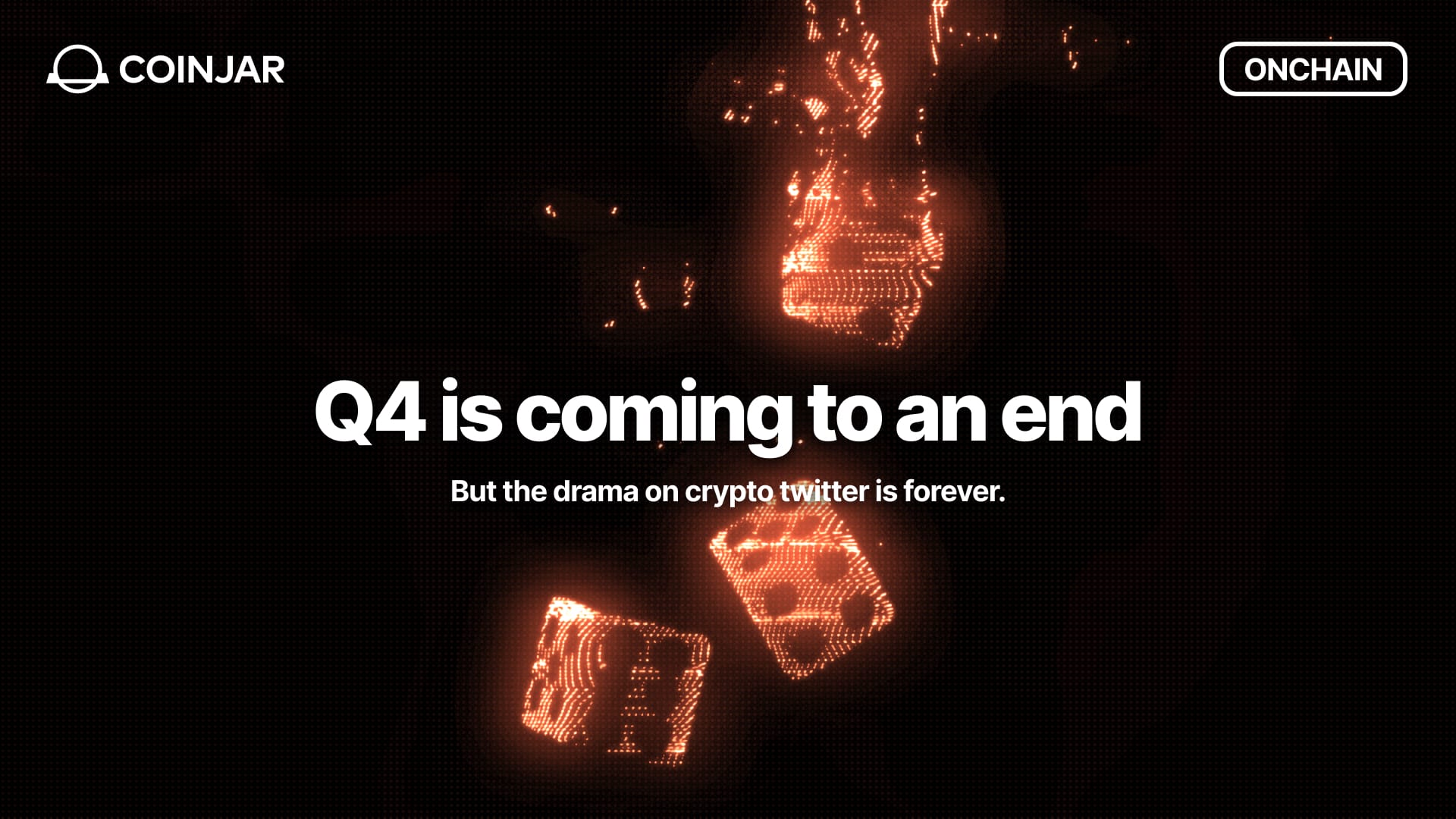The Crypto Bowl
February 17, 2022
Share this:

The Super Bowl was crypto’s intro to prime time. But is crypto ready for the big stage?
I don’t know exactly when it happened, but somewhere along the line advertising ate the Super Bowl. These days it’s less a sporting event than it is a 3-and-a-half hour parade of brand statements interspersed with occasional flashes of physical activity.
Given that around 100 million Americans watch it any given year, perhaps it’s unsurprising that companies are willing to stump up US$7 million for 30 seconds of airtime. But it also means that the Super Bowl has become an opportunity for America’s biggest companies to deliver a statement of intent – and this year, for the first time, that included crypto.
So, what did we get? FTX had Larry David. Crypto.com had LeBron. eToro had a Shiba Inu. Coinbase had a QR code bouncing around the screen for 60 seconds, producing such an intense explosion of interest that 20 million people tried to reach the Coinbase website at the same time, causing the whole website to crash.

The crypto, it sucks
It was a massive declaration from today’s crypto powerhouses. Yet looking at the market it’s clear that crypto as a whole remains, at best, in an uncertain position. At worst, the bear market is just getting started.
Crypto’s current woes are being mirrored by the US tech industry as a whole. The NASDAQ has lost more than 10% since the start of the year, dragged down by titans such as Facebook and Netflix, as well as pandemic-era upstarts like Peloton and Zoom.
The go-to answer for tech’s market woes is inflation. Cheap money (as in rock bottom interest rates) frees up a lot of cash to go chasing speculative yield – and ain’t nothing more speculative than emerging digital technology. It’s gonna change the world or go broke trying!
Yet twinned with that is the ongoing transition out of a pandemic economy. Lockdowns and travel bans drove capital towards in-home activities. Think: streaming TV, social media, remote work, ludicrously overpriced exercise bikes. As the world emerges, blinking, into the light, do we need to add “trading crypto” to the list?
Remembering the Dotcom Bowl
Back in the year 2000, 11 emerging players in the dotcom boom splashed out millions in venture capital funding to buy ad space at the Super Bowl. By 2002, eight of those companies were bankrupt.
There are plenty of reasons why today’s crypto behemoths are unlikely to share the same fate (for one, they have a business model that’s producing actual, real world profits). But it’s a good reminder that getting your brand in front of people isn’t the same as getting them to give you money – and that the merry-go-round can end faster than you think.
The struggle for crypto right now is one shared by all tech startups: how do you actually build something that will entice people to leave behind the systems they currently use? In short, how do you turn potential into product?
We know that crypto’s potential is almost limitless; it’s why the true believers, traders and speculators are already here. Now it’s time to deliver for the other 80%.
Don’t invest unless you’re prepared to lose all the money you invest. This is a high‑risk investment and you should not expect to be protected if something goes wrong. Take 2 mins to learn more.
Cryptoassets traded on CoinJar UK Limited are largely unregulated in the UK, and you are unable to access the Financial Service Compensation Scheme or the Financial Ombudsman Service. We use third party banking, safekeeping and payment providers, and the failure of any of these providers could also lead to a loss of your assets. We recommend you obtain financial advice before making a decision to use your credit card to purchase cryptoassets or to invest in cryptoassets. Capital Gains Tax may be payable on profits.
CoinJar’s digital currency exchange services are operated in the United Kingdom by CoinJar UK Limited (company number 8905988), registered by the Financial Conduct Authority as a Cryptoasset Exchange Provider and Custodian Wallet Provider in the United Kingdom under the Money Laundering, Terrorist Financing and Transfer of Funds (Information on the Payer) Regulations 2017, as amended (Firm Reference No. 928767).
Share this:
On/Offchain
Your weekly dose of crypto news & opinion.
Join more than 150,000 subscribers to CoinJar's crypto newsletter.
Your information is handled in accordance with CoinJar’s Privacy Policy.
More from CoinJar Blog

Onchain: Q4 is coming to an end
December 17, 2025But the drama on crypto twitter is forever. Story One EoY reflections kicking in At least if you are to believe the one X article that has been all over my feed in the...Read more
Introducing Travel Rule Support for Your CoinJar Address Book
December 12, 2025Save time and simplify travel rule requirements for your crypto transactions A new feature is now available in your CoinJar Address Book, designed to make your cryptocurrency...Read more
Onchain: Welcome to the last month of 2025
December 3, 2025Just when you get used to writing 2025 in communications, it's about to end. You look back and wonder, Where did the time go? Meanwhile, VCs are busy publishing their 2026...Read moreYour information is handled in accordance with CoinJar’s Privacy Policy.
Cryptoassets traded on CoinJar UK Limited are largely unregulated in the UK, and you are unable to access the Financial Service Compensation Scheme or the Financial Ombudsman Service.
We use third party banking, safekeeping and payment providers, and the failure of any of these providers could also lead to a loss of your assets.
We recommend you obtain financial advice before making a decision to use your credit card to purchase cryptoassets or to invest in cryptoassets. Capital Gains Tax may be payable on profits.
CoinJar’s digital currency exchange services are operated in the UK by CoinJar UK Limited (company number 8905988), registered by the Financial Conduct Authority as a Cryptoasset Exchange Provider and Custodian Wallet Provider in the United Kingdom under the Money Laundering, Terrorist Financing and Transfer of Funds (Information on the Payer) Regulations 2017, as amended (Firm Reference No. 928767).
Apple Pay and Apple Watch are trademarks of Apple Inc. Google Pay is a trademark of Google LLC.
This site is protected by reCAPTCHA and the Google Privacy Policy and Terms of Service apply.